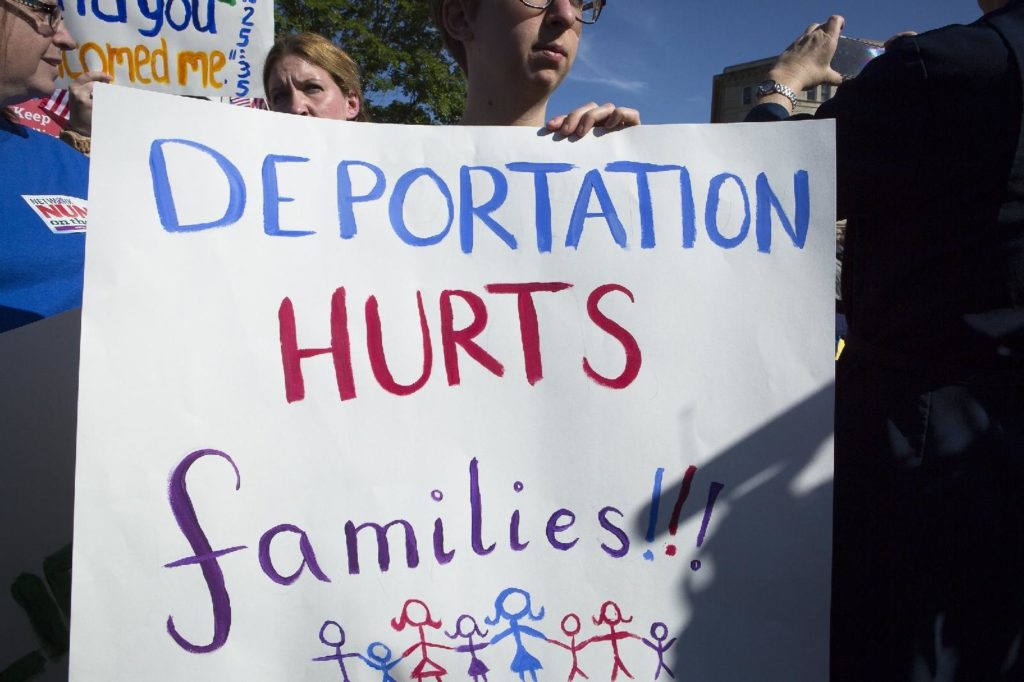A recent court ruling has become another bend in a "rollercoaster" ride for hundreds of thousands of individuals who arrived in the U.S. as children without legal permission, said an immigration expert.
"It's been an issue that causes a lot of stress and strain for people who are lacking any security about what's going happen with their futures," Ilissa Mira, a senior attorney with the Catholic Legal Immigration Network Inc., or CLINIC, told OSV News.
On Sept. 13, the U.S. District Court for the Southern District of Texas found the Deferred Action for Childhood Arrivals (DACA) Final Rule unlawful.
However, the court maintained a partial stay of the order for "all DACA recipients who received their initial DACA status prior to July 16, 2021," when the original injunction was issued.
The DACA program was created in 2012 under the Obama administration to offer protection from deportation to certain immigrants brought to the country as children. According to a March 2023 report by the U.S. Citizenship and Immigration Services of the U.S. Department of Homeland Security, 578,680 people are beneficiaries of DACA, of which just over 80% are Mexicans.
For current DACA recipients, the latest ruling "doesn't change the status quo," said Mira.
"The judge in this case found again that DACA is unlawful, and found that the new regulations didn't do anything to overcome the legal defects that he has found underlying DACA," she said. "And so even though DACA was found unlawful again, the judge stayed his ruling. ... So what that means is for those people who have DACA, they can kind of continue on as before."
Mira said "that means that they can continue to file renewal applications" and "hold their deferred action and their employment authorization.”
"They are still able to apply for advance parole, which would let them travel abroad from the United States, and they can kind of keep on going as usual," she said.
However, Mira added, DACA recipients will go on as usual "with this thing that's still gonna continue to loom over their heads -- this uncertainty about what will happen to DACA in the long run. So it's still a situation where the clock is ticking for them."
Carlos Alberto Méndez Velázquez knows that anxiety all too well. The 33-year-old Los Angeles resident, a filmmaker and documentarian, arrived in the U.S. with his parents from Mexico City when he was just 3 years old. He is a first-generation DACA beneficiary, one of the first individuals to qualify for this program.
His own experience with DACA -- whose recipients are often called "Dreamers" after the failed Dream Act, which sought to provide them permanent legal residency -- has been "like any other Dreamer," he told OSV News.
"There's a process where you get to high school, and they tell you that you can't go to college because you don't have a Social Security number and you can't qualify for scholarships, financial aid, FAFSA or anything like that," said Méndez Velázquez. (FAFSA stands for Free Application for Federal Student Aid.)
With several documentaries and short animated films to his credit, Méndez Velázquez founded UndocuCinema with two friends in 2020. "The organization supports immigrants who want to study film and television," he said.
Méndez Velázquez said he wants the government to give DACA recipients like him a path out of their immigration limbo, especially since he and fellow Dreamers generate jobs and contribute to the nation's prosperity.
"We are adults, (we) already have our families, our jobs, our careers, and to continue living through this is very stressful, exhausting," he said. "You don't want to deal with it anymore, and sometimes you don't even want to talk about it."
Mira agreed, saying, "It's been years now of 'What's gonna happen? Is my DACA gonna be taken away? Am I able to plan for the future knowing that I can only renew this two years at a time?'"
She encouraged DACA recipients to "keep up to date with their renewals" in the meantime.
Méndez Velázquez said he plans to keep raising awareness of DACA recipients' needs.
"We need something permanent to help us and our families," he said. "To continue telling our stories is the only way we will make ourselves heard."

